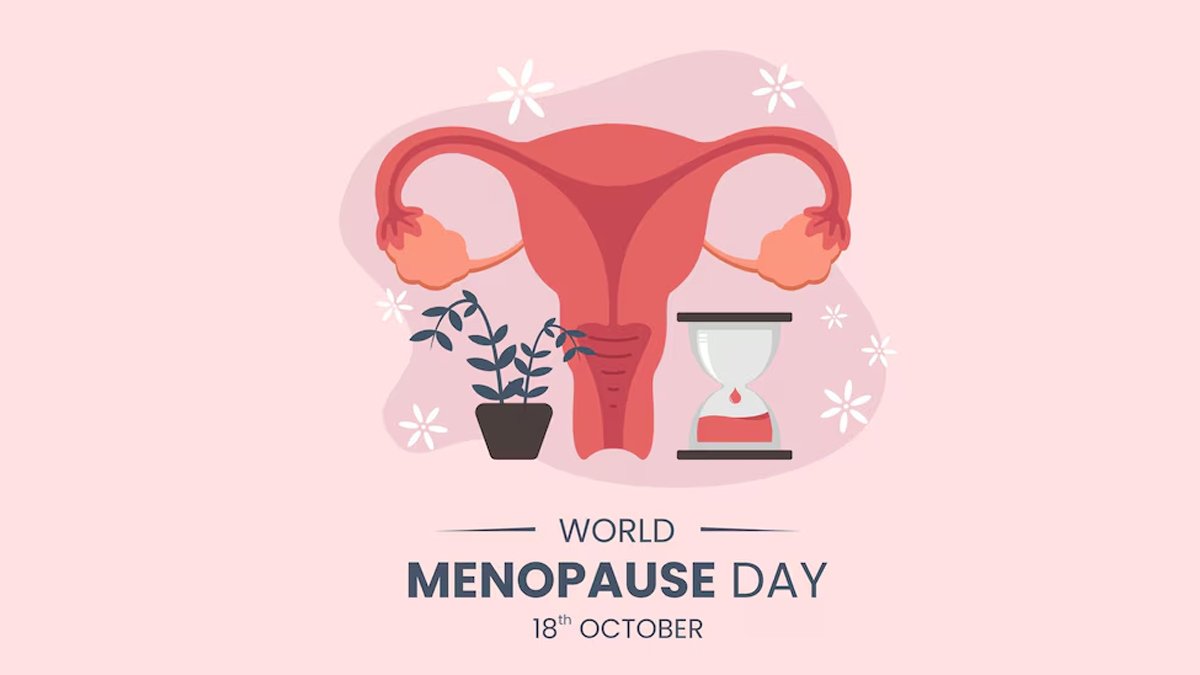World Menopause Day 2024: Let’s know about peri-menopause, its symptoms, hormonal changes related to it, and management tips from our expert in this article.
October 18 is celebrated as World Menopause Day, with the aim to shed light on women’s reproductive health. In this article, we will talk about a lesser-known term related to women’s reproductive health, peri-menopause, the hormonal changes associated with this condition, its symptoms, and tips to manage it, shared by our expert,Dr Nazia Dalwai, Gynaecologist and Obstetrician from Mumbai.
Menopause Vs Peri-menopause
Dr Nazia shared, “Menopause is the permanent cessation of the ovarian function or retrospectively, we can call it the absence of menses for 12 months. This signifies the end of a woman’s natural fertility. In related terms, perimenopause is the transition phase preceding menopause for about 2-8 years due to declining levels of the hormones.”
The average menopause age for Indian women is believed to be somewhere between 47 and 52 years. The doctor said, “However, the perimenopausal phase may vary in the women depending upon a variety of factors.”
- Genetic status and premature ovarian failure.
- Smoking.
- Ethnicity – Women of colour may show menopause almost 10 years earlier as compared to Caucasian ethnicity.
- Chemotherapy and ovarian surgery.
Hormonal Changes During Peri-menopause
- Decrease in estrogen
- Decrease in progesterone
- Decrease in testosterone
- FSH may vary markedly high (more than 30 IU/I)
- LH increases in response to low estrogen
Signs And Symptoms Of Perimenopause
“Fluctuating low levels of estrogen and progesterone give rise to signs and symptoms of perimenopause,” said Dr Dalwai.
- Hot flushes
- Vaginal dryness/itching
- Increased cardiovascular risk
- Sleep disturbances
- Urinary incontinence
- Dizziness
- Osteoporosis and its impact on bone health
- Irritability
- Fatigue
- Mood swings
- Sadness and depression
Don’t Miss:World Menopause Day 2024: Date, Theme, History And Significance
Management Of Perimenopause
Dr Nazia shared some expert tips that can help you manage perimenopause.
- Maintain a healthy lifestyle.
- Exercise regularly to stay fit.
- Calcium and Vitamin D supplements.
- Quit smoking and drinking alcohol.
- Dopelvic floormuscle exercises.
- Regular health checkups to monitor BP, levels of blood sugar, lipids, mammogram, PAP, bone densitometry and seeking help when any of the parameters are not within the range.
- Foods rich in isoflavanes may help in the alleviation of the symptoms of menopause.
- Awareness and the right decision by Ob-Gyn to start HRT can enhance the quality of life of women.
- Channelling energy in the right direction, working as per the requirements.
- Support from family members during this phase of emotional instability helps a lot in approaching and navigating life throughout perimenopause and menopause.
Don’t Miss:Can Obesity Increase The Chances Of Breast Cancer, Expert Weighs In










